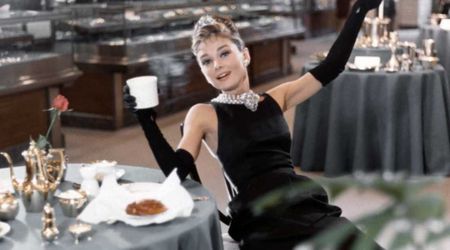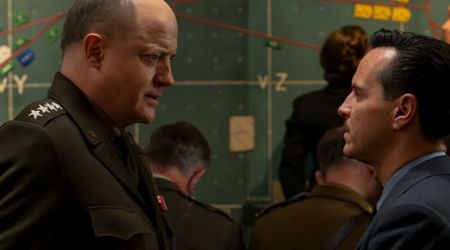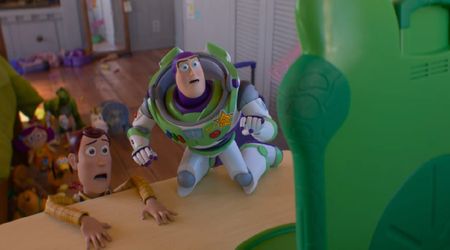'Radioactive': Did Marie Curie claim husband Pierre's credit in her discovery of Radium?

After playing the sinister and 'crazy' wife in 'Gone Girl', Rosamund Pike is ready to stun as Marie Curie in the Amazon Prime biopic 'Radioactive'. At its heart, the story follows the life of Curie, a woman in a man's world, fighting for her recognition and name.
It didn't come easy and Marie almost missed out on the Nobel Prize. Marie's scientific career began at the age of 27 and she was introduced to her husband Pierre by a physicist friend who thought Pierre would be able to lend Marie some lab space. Now that's what you call a wingman.
Later, they married in 1895 in a simple service and rumor has it that Marie’s bridal dress was her lab outfit for several years after. The two worked together on radioactivity and after their marriage, they published their work. Though Curie is now known for winning the Nobel Prize for her discovery of radium, the film shows that at first she wasn't nominated for it. Instead, the French Academy of Sciences nominated Henri Becquerel and her husband Pierre Curie as candidates for the Physics prize in 1903.
However, thankfully after the intervention of a member of the nominating committee, Swedish mathematician Magnus Goesta Mittag-Leffler, Marie got the due recognition for her work. Mittag-Leffler, an advocate of women scientists, wrote Pierre informing him about the situation. In his response, Pierre insisted that a Nobel Prize for research in radioactivity that did not acknowledge Marie's pivotal role would be a travesty. After much discussion, a nomination of Marie Curie in 1902 was validated for 1903.
Marie's life took a turn for the worse when her husband Pierre was killed in a road accident. The University of Paris offered her Pierre’s faculty position and she became the first female professor there. By 1910, she had successfully isolated radium for the first time. Despite her genius, Marie was constantly under the scanner. As she was born outside France, there were rumors that she was Jewish and she was denied entry into the French Academy of Sciences.
Curie remained undisturbed and continued with her work, even when news of her affair with Paul Langevin spread like wildfire throughout the country. In fact, Curie was told not to go to receive her Nobel Prize as an "adultress could not shake hands with the Swedish King". To which Marie calmly replied, "The prize has been awarded for the discovery of radium and polonium. I believe that there is no connection between my scientific work and the facts of private life. I cannot accept… that the appreciation of the value of scientific work should be influenced by libel and slander concerning private life." However, this did take a toll on Marie and she was hospitalized for depression. And yet, she still came back from that and continued her work.
There have been theories and much speculation over the years, whether Marie had actually claimed the credit for her husband's work. Many believe that she might not have discovered Radium if she hadn’t used her husband’s discovery of the piezoelectric effect to study radioactivity electrically. There has been much debate about how her husband's research led her to what she did. Yet, it seems as if they built off each other's research and energy and worked together on their studies and that proved fruitful.
Being a woman in the 1900s wasn't easy (not saying it's any less stressful now).
'Radioactive' will stream on Amazon Prime on July 24.










